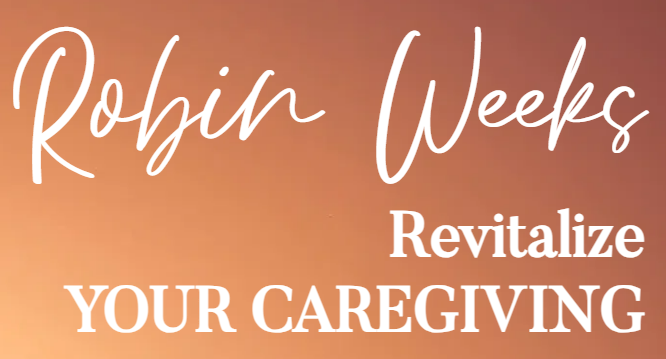My father and older brother died 5 days apart. In reflection, I realized that was the start of my caregiving journey with my mother. I jumped in, both feet, and started swimming as fast as I could. My two younger brothers lived several states away and I was a 3-hour drive.
When the drive was no longer sustainable my mother and I agreed, she would move to assisted living near me. That’s when my Caregiver Do It All Syndrome kicked in! She decided to no longer drive so that was the first thing I should have noticed because I was doing all her shopping, taking her places, etc. I wasn’t paying attention. I was just glad to have her near me and she spent weekends at my country farm. We could still have some adventures and go places.
As the years rolled on, my tasks increased. Don’t let anyone ever say to you, “It must be easier on you with your mother in assisted living!” As someone said to me. This is a fallacy. If you care about this person, you will spend huge amounts of time with all the staff at the residence in addition to all the other tasks in supporting them.
Caregiving is a demanding role that often comes with immense emotional, physical, and mental pressures. Many caregivers find themselves falling into the mindset that they must handle all the tasks related to caring for their loved ones, believing they are the only ones capable of providing the necessary care. This belief can stem from various factors, including a deep sense of responsibility, fear of inadequate care from others, and the desire to maintain control over the caregiving process. However, this mindset can lead to significant downsides, both for the caregiver and the person receiving care.
**The Origins of the ‘Do-It-All’ Mentality**
See if any of these resonant with you.
- **Sense of Duty and Responsibility**: Caregivers often feel a profound sense of duty towards their loved ones. This sense of responsibility can be so strong that they believe no one else can fulfill the caregiving role as effectively as they can.
- **Fear of Inadequate Care**: Trusting others with caregiving tasks can be difficult. Caregivers may fear that others will not provide the same level of attention, care, or compassion. This fear can lead to the belief that it is safer and better for the caregiver to handle everything themselves.
- **Desire for Control**: Caregiving involves many critical decisions, from medical care to daily routines. Caregivers may feel that maintaining control over these decisions ensures the best possible care for their loved one.
- **Guilt and Perfectionism**: Many caregivers experience guilt if they consider delegating tasks. They may feel that asking for help is a sign of weakness or inadequacy. Perfectionism can also play a role, with caregivers believing that only they can perform tasks to the necessary standard.
**The Downsides of Being the Sole Caregiver**
While the desire to manage all caregiving tasks is understandable, it comes with several significant downsides:
- **Physical and Emotional Exhaustion**: The constant demands of caregiving can lead to burnout. Physical exhaustion from handling all tasks, coupled with emotional stress, can take a severe toll on a caregiver’s health.
- **Neglect of Personal Needs**: Caregivers often put their own needs last. This neglect can result in poor health, lack of self-care, and a decline in overall well-being. Over time, this can affect their ability to provide quality care.
- **Strained Relationships**: Focusing exclusively on caregiving can strain relationships with other family members and friends. The caregiver may feel isolated, and resentment can build up if others feel excluded or undervalued.
- **Reduced Quality of Care**: Ironically, trying to do everything alone can lead to a decrease in the quality of care provided. A fatigued and stressed caregiver may be less effective, more prone to mistakes, and less patient and compassionate.
- **Limited Perspective**: Having multiple people involved in caregiving can bring different perspectives and solutions to problems. When one person handles everything, there is a risk of missing out on valuable input and support.
**Embracing Support and Delegation**
Recognizing the downsides of being the sole caregiver is the first step towards creating a healthier caregiving environment. Here are some strategies to help caregivers embrace support and delegation:
- **Seek Help and Build a Support Network**: Reach out to family members, friends, or professional caregivers for assistance. Building a support network can alleviate the burden and provide emotional support.
- **Communicate Clearly**: Clearly communicate the needs and tasks involved in caregiving. This can help others understand the importance of their involvement and encourage them to contribute effectively. Not everyone needs to interact directly with the loved one. There are so many tasks that take place away from the cared for person.
- **Practice Self-Care**: Prioritize self-care to maintain your health and well-being. Taking breaks, engaging in hobbies, and seeking respite care can help recharge your energy. Finding a community of other caregivers to share with provides immense relief.
- **Trust Others**: Learn to trust others with caregiving tasks. Training and clear instructions can help ensure that tasks are performed to the required standard. Learn to delegate and prioritize tasks.
- **Let Go of Perfectionism**: Accept that it’s okay if things are not done exactly as you would do them. What matters most is that your loved one receives the care and attention they need.
Caregiving is a challenging yet rewarding journey. By recognizing the importance of support and delegation, caregivers can ensure they provide the best possible care while also taking care of themselves. Remember, you don’t have to do it all alone. Reaching out for help is a sign of strength, not weakness.

